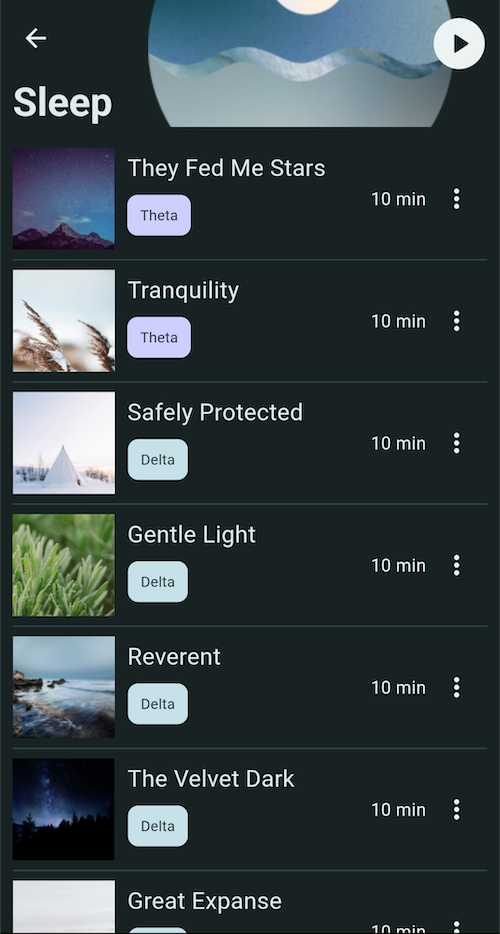Why Restful Self-Care Is So Important for Neurodivergent People

Restful self-care is crucial for neurodivergent folk.

Why restful self-care matters
For us, rest is a shield against the overstimulation of our everyday world.
Neurodivergent brains often process information differently. Such as:
- social cues
- cognitive demands, and
- sensory sensitivities
These differences can be draining and overwhelming.
Plus sleep challenges are common for neurodivergents.
Some research suggests ADHDers might have a naturally delayed circadian rhythm.
This could contribute to feeling more alert later in the evening and struggling to fall asleep at a typical bedtime.
One study showed up to 80% of autistic children experience sleep disturbances.
Studies have also shown insomnia is common in people with:
Which means quality sleep and restful self-care can greatly improve your well-being.
What is restful self-care?

Restful self-care is any form of rest, relaxation or rejuvenation. It’s a way to offset the exhaustion of being neurodivergent in a neurotypical world.
Types of restful self-care include:
- naps
- crafting
- meditation
- a warm bath
- daydreaming
- getting enough sleep
- spending time in nature
- listening to meditones®
6 reasons why restful self-care is so important for neurodivergents
Life can be tough for neurodivergent people, but restful self-care can be a big help.
Here are 6 reasons it’s so important:
1. Sensory Sensitivities
Heightened sensitivity to sounds, lights, or textures can lead to sensory overload.
A low-sensory environment can ease stress and help you self-regulate.
Rooms with low lights, minimal noise, and soft textures can help create calm.
Noise-cancelling headphones or earplugs can help minimise auditory input.
This can give you a sense of control over your environment and offer much-needed relief.
2. Social Fatigue:
Interacting in social situations may be draining for neurodivergent folk.
So carve out some “me time” after socialising with a quiet nap or a relaxing crafting session.
It’ll give you some much-needed solitude and help you feel refreshed.

You could also take breaks during events, finding a quiet space to decompress in.
Remember to communicate your need for social breaks to friends, family, or colleagues.
Setting clear boundaries can help manage expectations and reduce the pressure to be social.
Having a network of supportive people can provide understanding and encouragement.
You could also prepare and rehearse social scripts to navigate social situations. Having pre-planned responses can reduce anxiety and make interactions more manageable.
3. Cognitive Overload
Because neurodivergent brains process information differently, cognitive overload is common.
Spending time in nature, daydreaming or listening to meditones give you moments of mental rest.
This can help prevent neurodivergent burnout.
While doing tasks that require high cognitive load, schedule breaks to prevent mental fatigue.
Daily rituals and predictable routines can also reduce stress, by creating a sense of stability and familiarity.
If applicable, discuss potential workplace or academic accommodations with relevant people.
Adjustments such as extended deadlines or modified work environments may also help.
4. Sleep Difficulties
Sleep disturbances are common, especially among autistic people and ADHDers.
Hypervigilance from PTSD can also contribute to disrupted sleep.
Good sleep hygiene, such as consistent bedtimes and wind-down rituals, can improve sleep quality and well-being.
We have a Sleep Playlist within the Restful app, which may help you fall asleep faster.

Ensure your bedroom is conducive to sleep by keeping it dark, quiet, and cool.
Consider blackout curtains, earplugs, or a white noise machine to minimise disruptions.
If poor sleep persists, make sure to seek professional help to find tailored solutions and support.
5. Anxiety and Depression
It’s well-established that autistic & ADHD people face higher rates of anxiety and depression.
So it may be necessary to see a mental health professional. Preferably one with expertise in neurodivergence.
Therapists can provide a tailored plan and help you develop personal coping strategies.
There is no shame in requiring assistance for your mental health.
Asking for help is a form of restful self-care.
6. Executive Functioning Differences
.png)
Executive function is a set of cognitive skills.
Tasks requiring planning, organisation, and time management can be challenging for neurodivergent folk.
Adequate rest, regular breaks and enough sleep can enhance executive function and productivity.
When it’s time to take a break, give your mind a rest by staring out the window.
Gazing at the horizon allows your eyes to relax and induces a state of calm.
Movement breaks can also help regulate arousal and improve focus, especially in ADHDers.
Getting up to stim, move, jump, dance or even stretch can be a form of restful self-care.
Takeaway
Neurodivergent folk can benefit greatly from restful self-care.
Taking a nap, getting crafty, or listening to meditones can help you manage sensory overload.
Getting enough sleep is key for your brain to function well. Plus spending time outdoors and movement can do wonders for your well-being.
Restful self-care helps you build resilience, avoid burnout, and live a happier healthier life.
Practice restful self-care with the Restful app. Download for free on Google Play or the App Store today!